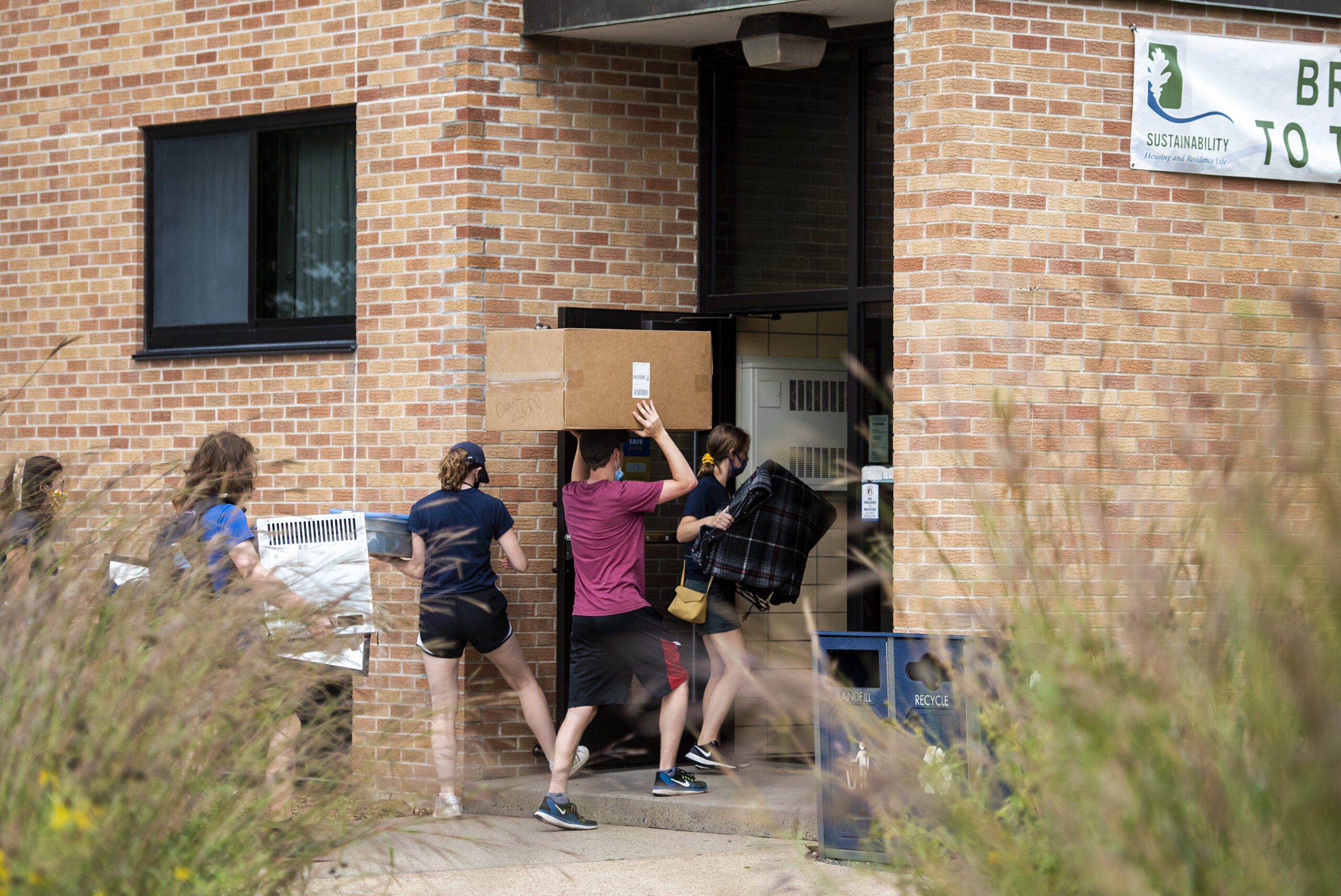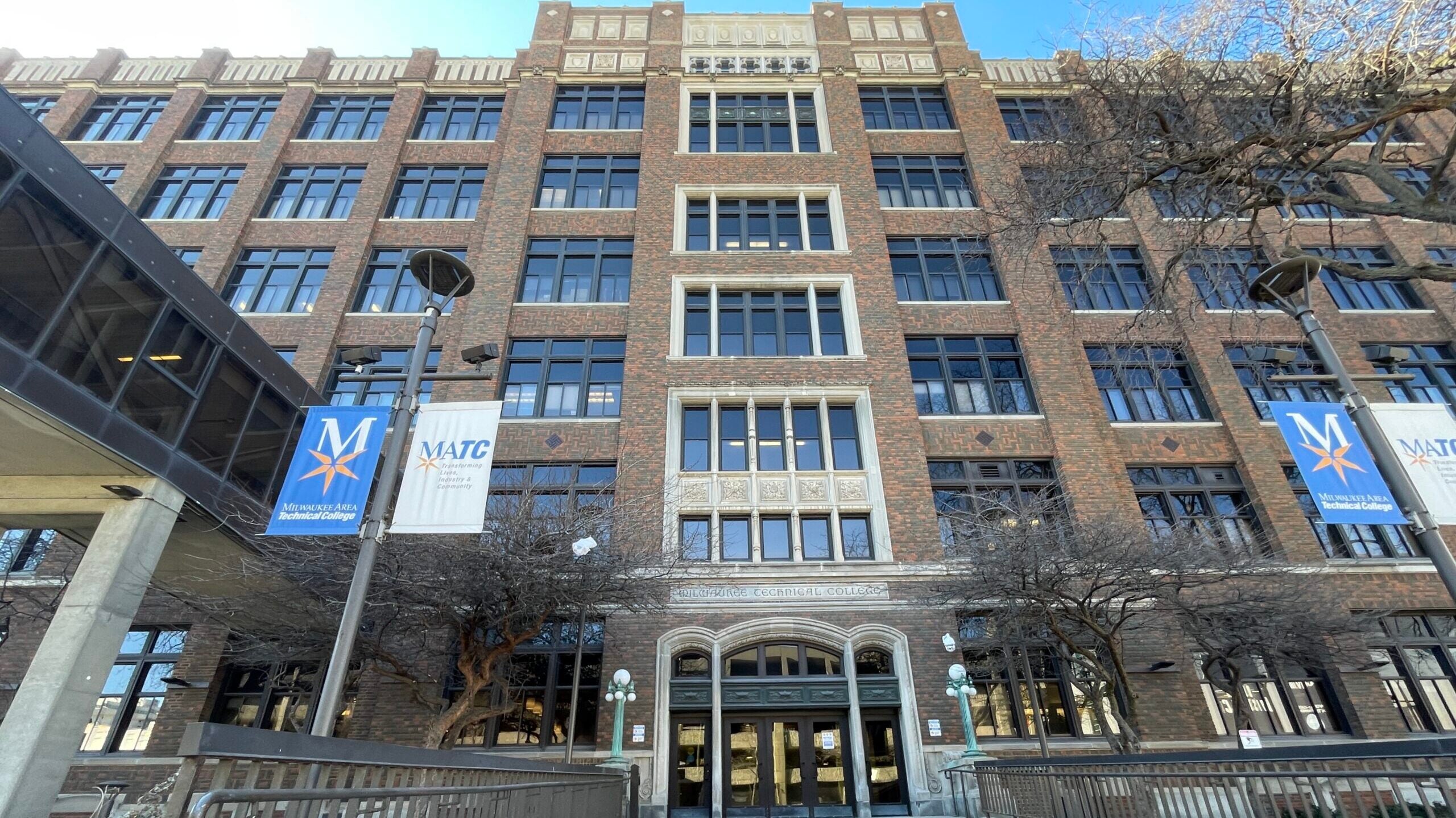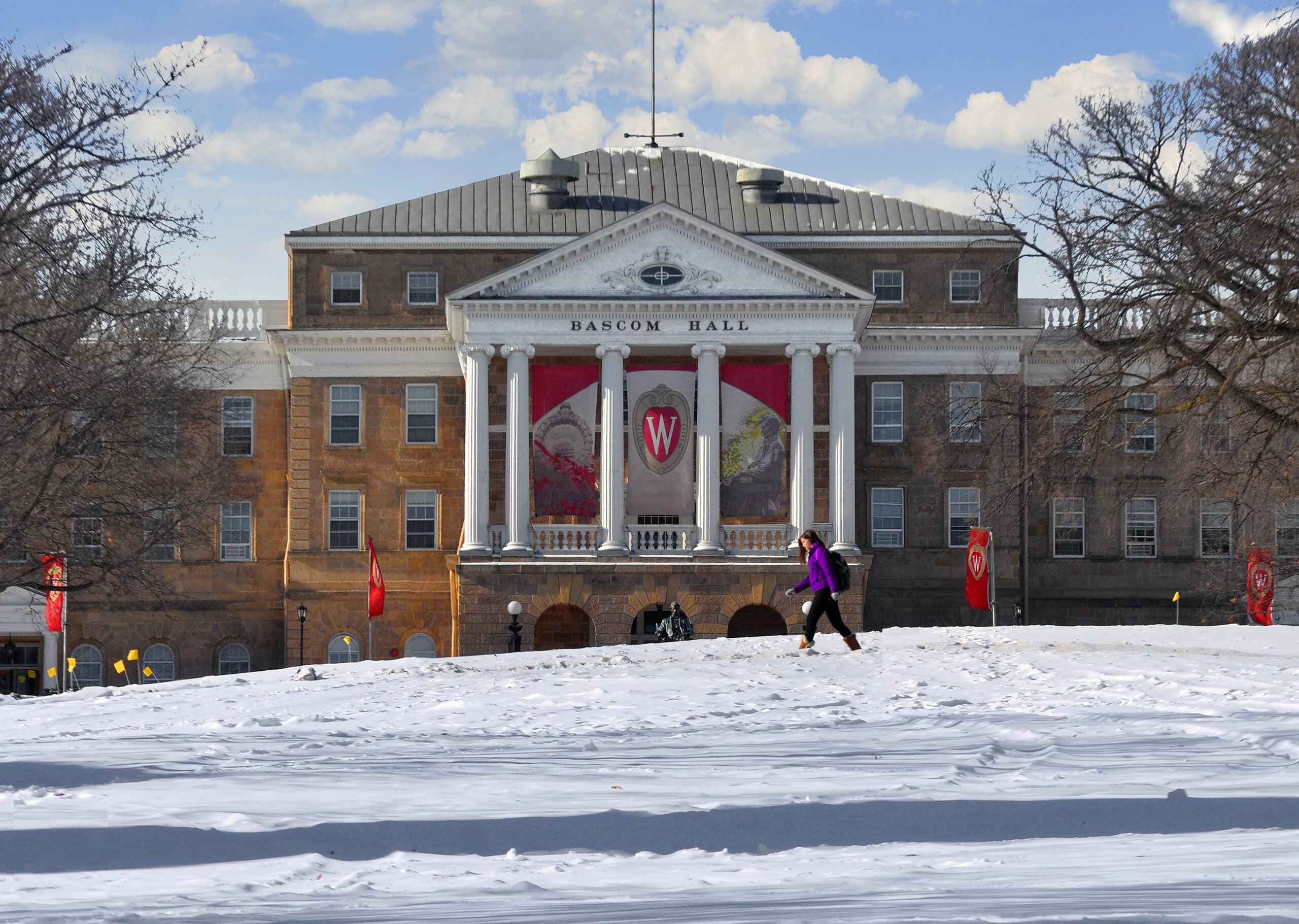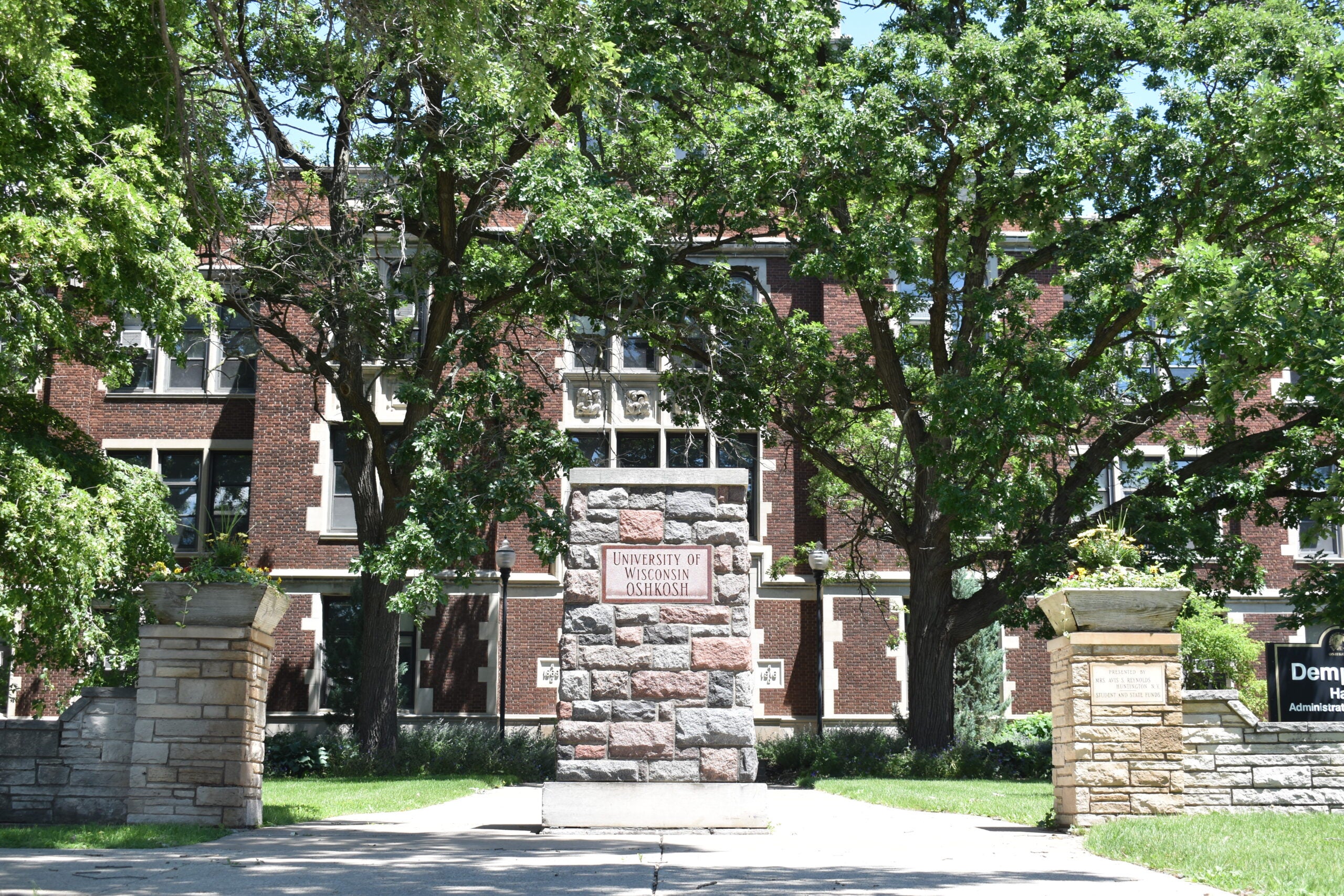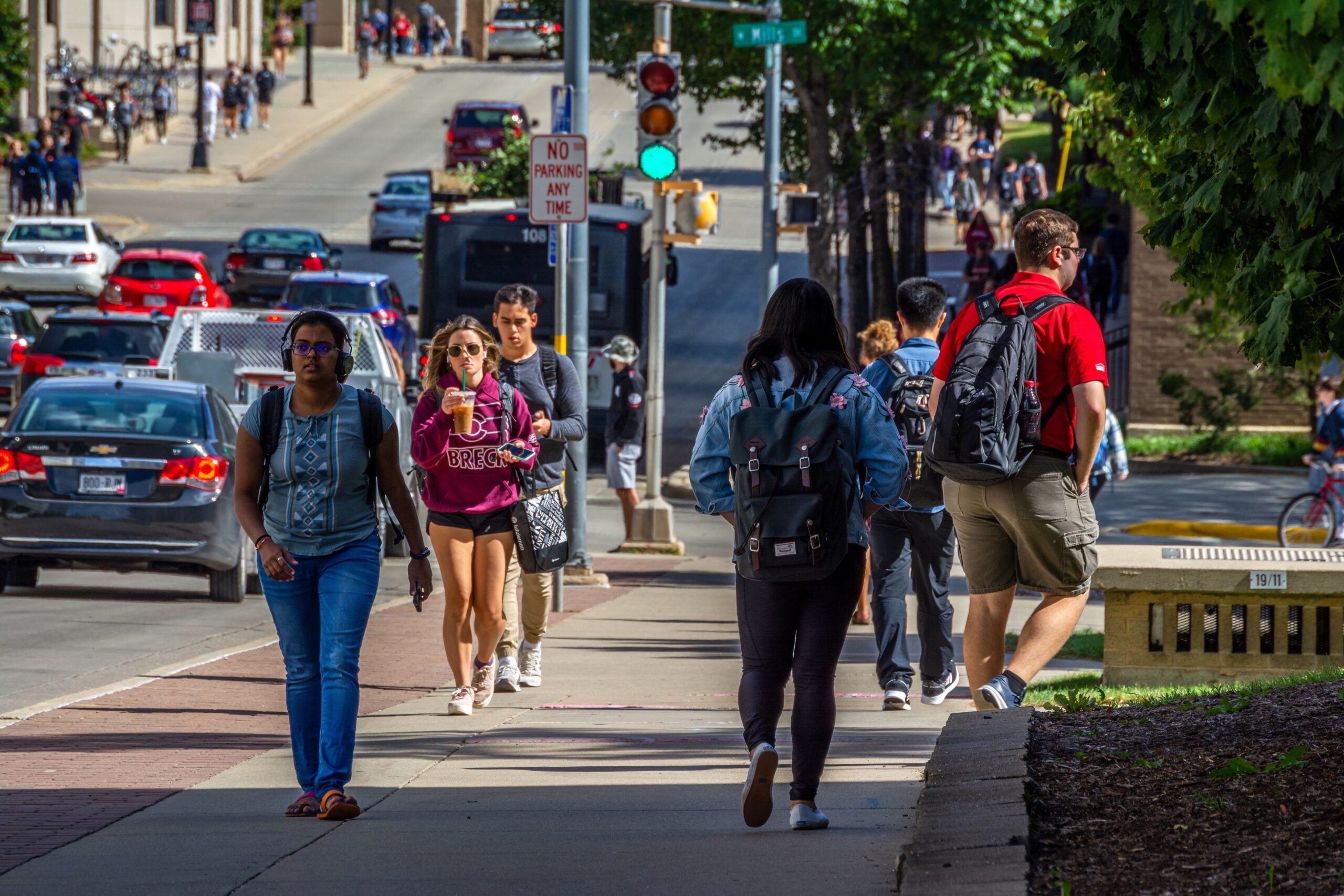University of Wisconsin System estimates show fall enrollment fell by around 1 percent across the state’s 26 college campuses compared to last fall. Just three universities reported enrollment increases while the rest saw declines between 1 percent and 11 percent.
Initial enrollment estimates released by the UW System show a range of good and bad news for the state’s campuses. Official fall enrollment figures won’t be released until later in the semester, but the UW System administration office has released “first day” estimates “because of interest in the impact of the COVID-19 pandemic,” according to a press release.
Estimates released last fall proved to be within 1 percent of official enrollment figures released later in the semester.
Stay informed on the latest news
Sign up for WPR’s email newsletter.
Estimates show that only three out of 13 universities added students this fall — that’s based on a UW System comparison of this year’s estimates and last year’s official fall headcount. Topping the list was UW-Madison, which is expected to add 2,564 students for an increase of 6 percent. UW-Green Bay added 313 students for an increase of 3 percent over last fall. UW-Superior added 45 students, which works out to a 2 percent increase.
UW-Green Bay Chancellor Michael Alexander told WPR he’s pleased to see enrollment increase, given widespread declines across higher education during the pandemic. He said first-year enrollments are up and the campus saw a 12 percent jump in graduate students.
“So, it’s not just how we’re recruiting, it’s that we’re doing a better job every year retaining our students,” said Alexander. “And to me, that’s the most important thing.”
Jeremy Nere is UW-Superior’s executive director of admissions. He said the campus waived its $25 application fee and added two new online degree programs during in the pandemic, which helped increase interest in the UW’s northernmost university.
“So, with our new freshmen, we’re up 23 percent over last year,” said Nere. “And that’s actually higher than both our freshman classes in 2018 and 2019.”
Among the 10 UW campuses expected to lose students based on estimates, UW-Platteville saw the greatest drop. The university is projected to be down 839 students compared with official figures from fall 2020, which works out to an 11 percent decline. UW-River Falls is anticipated to lose 472 students, which works out to an 8 percent decline. UW-Parkside projections show a loss of 317 students, for a 7 percent decline.
The remaining UW campuses are expected to see fall enrollment drop between 1 percent and 4 percent.
In an interview with WPR, UW System Interim President Tommy Thompson said there are positives in the latest enrollment estimates. He said several campuses saw significant increases in their first-year classes including UW-Stevens Point, UW-La Crosse and UW-Madison.
“Where we fell down is that freshman from last year did not come back in the same number as we had expected,” said Thompson.
Thompson blames the switch to online classes during much of the 2020-2021 school year, spurred by the COVID-19 pandemic. He said eight weeks before the start of the 2021 fall semester, System administrators saw that many students who started classes last year weren’t planning to re-enroll. Thompson said he sent individual letters to those students asking them to come back, which helped with retention.
Students are glad to be back on campus, said Thompson. He’s hopeful that if classes remain in-person this school year, enrollment will increase in 2022.
Despite an estimated 2 percent enrollment decline at UW-La Crosse, campus administrators celebrated a surge of first-year student enrollments in a university press release. The campus noted an incoming class of 2,207 students, a record for UW-La Crosse.
Natalie Solverson, UW-La Crosse director of Institutional Research, Assessment and Planning, said in the release that the campus’ overall enrollment drop is due to undergraduate students not returning to school this fall and a decline in graduate student enrollment.
“That’s where we’re seeing a decline,” said Solverson. “Our returning undergraduate degree students are down over 3 percent. These challenges are being felt across the UW System.”
While the UW System’s initial estimates are expected to differ slightly from official fall counts later in the semester, the declines are similar to recent trends for UW System campuses.
If the current estimates hold, UW-Platteville’s projected 11 percent decline this fall would be well above a 6.7 percent drop in enrollment in fall of 2020 and a 7.6 percent decline in fall of 2019, according to official counts from those years.
Official enrollment figures show UW-River Falls has also seen consistent enrollment declines over the last three years, though well below the 8 percent drop estimated this fall. In 2020, the campus lost just less than 2 percent of students compared with the prior year. In 2019, UW-River Falls’ enrollment fell by 2.6 percent.
UW-Green Bay and UW-Madison have enjoyed consistent enrollment increases over the past three years, according to official fall data.
In 2020, the state’s flagship university grew enrollment by 1 percent compared with the prior year. The increase from fall 2018 to fall 2019 was nearly 2 percent.
UW-Green Bay enrollment rose by nearly 2 percent in fall 2020 compared with the year before. Enrollment increased by 2.5 percent in fall 2019. Chancellor Michael Alexander
Nationally, the pandemic has taken a toll on fall and spring enrollment across public and private universities. In October 2020, the National Student Clearinghouse released data showing a 4 percent enrollment drop across all private nonprofit and public universities and a 5.7 percent enrollment drop at institutions in the Midwest.
Wisconsin Public Radio, © Copyright 2025, Board of Regents of the University of Wisconsin System and Wisconsin Educational Communications Board.

